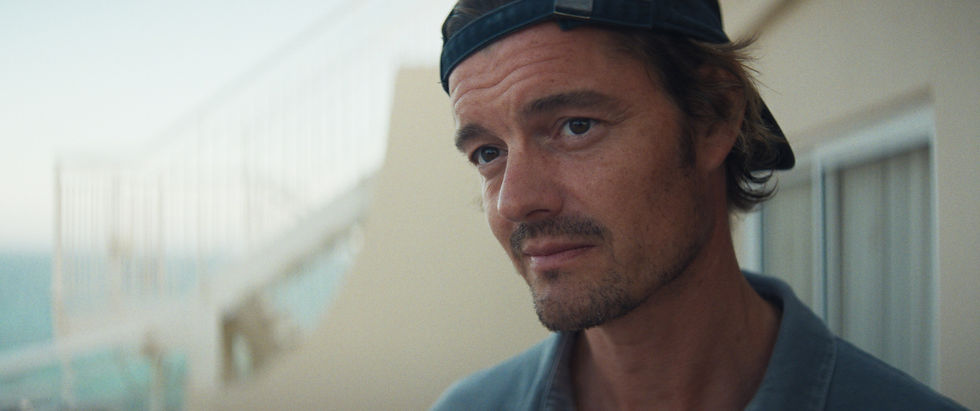BAIT
- Susan Gray

- Mar 31, 2020
- 2 min read
Updated: Jul 1, 2020
WRITTEN & DIRECTED BY MARK JENKIN
CAST: EDWARD ROWE, MARY WOODVINE, GILES KING, SIMON SHEPHERD UK 2019, 89 MINS, CERT 15
BFI PLAYER SUBSCRIPTION, DVD, BLU RAY

REVIEW by SUSAN GRAY
When Quentin Tarantino asks if he can have a spare 35mm print of your film to show at his Hollywood cinema, it’s safe to say your time as a director has come. And this was the experience of Bait’s director Mark Jenkin, when he picked up his 2020 BAFTA for Outstanding Debut by a British Writer for his first feature.
Bait is a drama that looks like a documentary as it was made on 16mm film, with a 1970s Kodak camera, each reel providing 2.5 minutes of useable film. Texture is hugely important, as the finished product incorporates pollen and scratches, all highly visible to the audience as the film crackles and fizzes with life. Jenkin cites documentary maker Humphrey Jennings as a ‘retrospective influence’, and the black and white imagery and close ups certainly have a 1940s British feel about them. The series of jerky vignettes are also reminiscent of Basil Dearden’s 1945 horror Dead of Night.
Bait’s plot is minimal: locals clash with second home owners in a Cornish fishing village, with predictably tragic consequences. But this does not take away from the film’s deft characterisation and striking impact. Martin, played by Edward Rowe, is a wounded, floundering everyman, trying to hold on to his identity as a fisherman, albeit a boatless one, against a tide of wealthy tourists and incomers, gobbling up his village’s traditional houses and space at the pub bar.
Cornishman Jenkin’s roots are evident in touching tiny details, such as a taxi ride costing £100, revealing the inflation forced upon low income villagers when wealthy second homeowners distort the local economy. In Bait incomers are personified by the Leigh family who have bought, and given a nautical makeover to, Martin’s mother’s house. Sandra Leigh, played beautifully by Mary Woodvine, is a tightly wound, for- goodness- sake -get- on- with- it, counterpoint to Martin’s brooding. Both characters believe they have right on their side, and its an unsettling feeling to realise most of our lives now have more in common with the Leighs than the lives of Martin, and his estranged brother Steven.
Bait’s conclusion is redemptive, and comes by way of symbolism laid on thicker than clotted cream on a 5 star, palm court scone. When local fury is exacted by smashing a decorative porthole with a giant granite pestle and mortar, it’s hard to know whether to laugh or cry. But the film is such a visual treat, with great originality, odd moments of over indulgence are easy to forgive.


